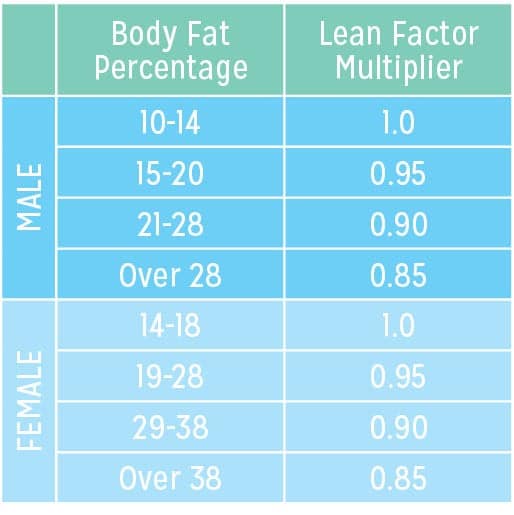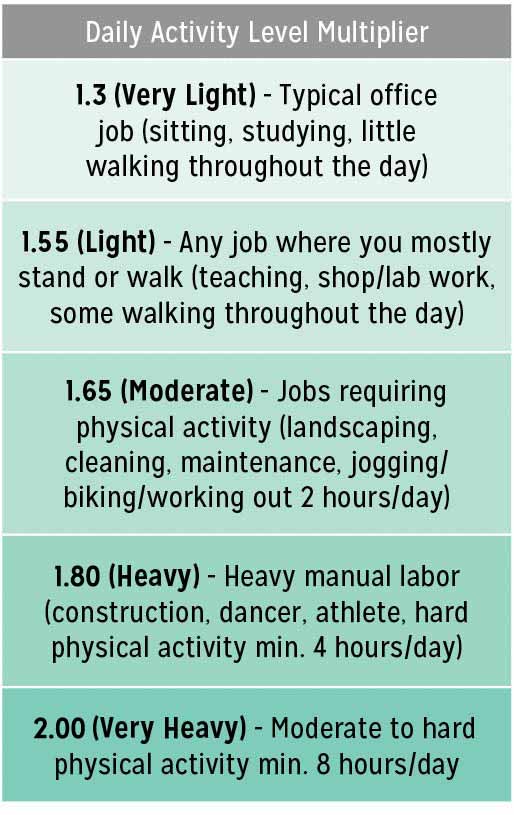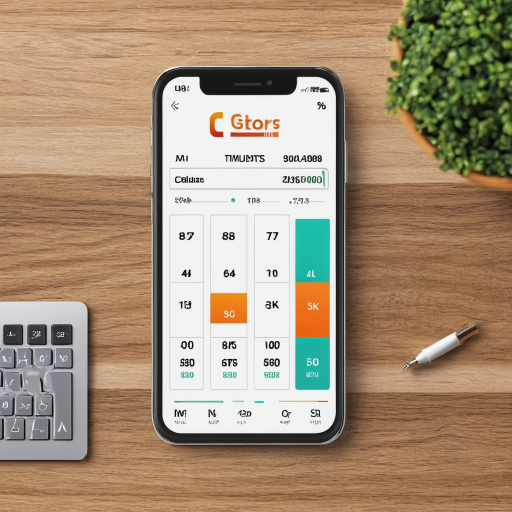How Many Calories Do You Need?
People who want to lose weight often find that the easiest way to do so is to eat less each day. But how many calories does the human body really need to stay healthy? This depends a lot on how active a person is every day, but it’s different for everyone because there are so many different factors involved, not all of which are well understood or known. Age, weight, height, sex, level of physical activity, and overall health are all things that affect how many calories a person needs to stay healthy. For example, a physically active 25-year-old man who is 6 feet tall needs to eat a lot more calories than a 70-year-old woman who is 5 feet tall and doesn’t do much.
The U.S. Department of Health says that adult men need between 2,000 and 3,000 calories per day to maintain their weight, while adult women need between 1,600 and 2,400 calories per day. To stay alive, the body doesn’t need many calories. But if you eat too few calories, your body won’t work well because it will only use the calories for functions that are necessary for survival and ignore those that are important for your overall health and well-being. Harvard Health Publications says that unless you are being watched by a doctor, women should get at least 1,200 calories a day and men should get at least 1,500 calories a day. Because of this, it is very important for someone trying to lose weight to keep track of their body’s caloric needs and adjust them as needed to meet their body’s nutritional needs.
Calories: Different Kinds and Their Effects
Carbohydrates, proteins, and fats are the main sources of calories in a typical person’s diet. Alcohol is also a big source of calories for many people (though ideally this should be limited since alcohol contains many empty calories). Some studies have shown that the number of calories on nutrition labels and the number of calories that people actually eat and keep can be very different.
This shows how complicated calories and nutrition are, which is why there are so many different ideas about the “best” way to lose weight. For example, how much a person chews their food has been shown to have some effect on weight loss. In general, chewing food more makes the body burn more calories while digesting it. People who chew more tend to eat less because it takes longer to chew their food. This gives them more time to feel full, which makes them eat less. But the effects of how food is chewed and how it is digested aren’t fully known, and it’s possible that there are other factors, so this information should be taken with a grain of salt (in moderation if weight loss is the goal). Fruit, vegetables, lean meats, whole grains, and other foods that take more effort to chew make the body burn more calories.
This is because it takes more calories to digest these foods. It also makes you feel full for a longer amount of time. Also, the ingredients in foods like coffee, tea, chilies, cinnamon, and ginger have been shown to speed up the rate at which calories are burned. Also important is the “quality” of the calories you eat. There are different groups of foods based on how many calories they have. This includes both foods with lots of calories and foods with few calories.
High-calorie foods are calorically dense, which means they have a lot of calories for their size, while low-calorie foods have less calories for their size. High-calorie foods are things like fat, oils, fried foods, and foods with a lot of sugar. But just because a food is high in calories doesn’t mean it’s unhealthy. Avocados, quinoa, nuts, and whole grains are all high-calorie foods that are healthy in moderation. Some foods that are low in calories are vegetables and some fruits. Empty calories, like those in added sugars and solid fats, are calories that don’t provide much or any nutrition. Studies have shown that eating 500 calories worth of carrots is different from eating 500 calories worth of popcorn.
As was already said, this is partly because of the different ways the foods are eaten and processed. Carrots take a lot more chewing, which can make you burn more calories while digesting them. Again, the exact reasons for these differences are not fully understood. For weight loss purposes, the general rule that the number of calories you eat minus the number of calories you burn is what determines whether you gain or lose weight. However, the number of calories on a nutrition label does not always reflect how many calories your body actually keeps.
Even though there is no clear-cut or ideal amount of macronutrients a person should eat to maintain a healthy diet or lose weight, eating a “healthy” diet full of a variety of unprocessed foods like vegetables, fruits, and lean meats is linked to being healthier and is more likely to lead to long-term weight loss. Also, keep in mind that a typical person gets about 21% of their calories from drinks. Many of these calories are “empty calories,” or calories that don’t do anything. Even though sodas are the most obvious offenders, drinks like juices and even milk have a lot of sugar and should be drunk in moderation to keep their health benefits. To get the least amount of calories from drinks, a person should try to drink water, tea, and coffee without adding sugar.
Calories in Common Foods
| Food | Serving Size | Calories | kJ |
| Fruit | |||
| Apple | 1 (4 oz.) | 59 | 247 |
| Banana | 1 (6 oz.) | 151 | 632 |
| Grapes | 1 cup | 100 | 419 |
| Orange | 1 (4 oz.) | 53 | 222 |
| Pear | 1 (5 oz.) | 82 | 343 |
| Peach | 1 (6 oz.) | 67 | 281 |
| Pineapple | 1 cup | 82 | 343 |
| Strawberry | 1 cup | 53 | 222 |
| Watermelon | 1 cup | 50 | 209 |
| Vegetables | |||
| Asparagus | 1 cup | 27 | 113 |
| Broccoli | 1 cup | 45 | 188 |
| Carrots | 1 cup | 50 | 209 |
| Cucumber | 4 oz. | 17 | 71 |
| Eggplant | 1 cup | 35 | 147 |
| Lettuce | 1 cup | 5 | 21 |
| Tomato | 1 cup | 22 | 92 |
| Proteins | |||
| Beef, regular, cooked | 2 oz. | 142 | 595 |
| Chicken, cooked | 2 oz. | 136 | 569 |
| Tofu | 4 oz. | 86 | 360 |
| Egg | 1 large | 78 | 327 |
| Fish, Catfish, cooked | 2 oz. | 136 | 569 |
| Pork, cooked | 2 oz. | 137 | 574 |
| Shrimp, cooked | 2 oz. | 56 | 234 |
| Common Meals/Snacks | |||
| Bread, white | 1 slice (1 oz.) | 75 | 314 |
| Butter | 1 tablespoon | 102 | 427 |
| Caesar salad | 3 cups | 481 | 2014 |
| Cheeseburger | 1 sandwich | 285 | 1193 |
| Hamburger | 1 sandwich | 250 | 1047 |
| Dark Chocolate | 1 oz. | 155 | 649 |
| Corn | 1 cup | 132 | 553 |
| Pizza | 1 slice (14″) | 285 | 1193 |
| Potato | 6 oz. | 130 | 544 |
| Rice | 1 cup cooked | 206 | 862 |
| Sandwich | 1 (6″ Subway Turkey Sandwich) | 200 | 837 |
| Beverages/Dairy | |||
| Beer | 1 can | 154 | 645 |
| Coca-Cola Classic | 1 can | 150 | 628 |
| Diet Coke | 1 can | 0 | 0 |
| Milk (1%) | 1 cup | 102 | 427 |
| Milk (2%) | 1 cup | 122 | 511 |
| Milk (Whole) | 1 cup | 146 | 611 |
| Orange Juice | 1 cup | 111 | 465 |
| Apple cider | 1 cup | 117 | 490 |
| Yogurt (low-fat) | 1 cup | 154 | 645 |
| Yogurt (non-fat) | 1 cup | 110 | 461 |
* 1 cup = ~250 milliliters, 1 table spoon = 14.2 gram
2000, 1500, and 1200 Calorie Sample Meal Plans
| Meal | 1200 Cal Plan | 1500 Cal Plan | 2000 Cal Plan |
| Breakfast | All-bran cereal (125) Milk (50) Banana (90) | Granola (120) Greek yogurt (120) Blueberries (40) | Buttered toast (150) Egg (80) Banana (90) Almonds (170) |
| Snack | Cucumber (30) Avocado dip (50) | Orange (70) | Greek yogurt (120) Blueberries (40) |
| Total | 345 Calories | 350 Calories | 650 Calories |
| Lunch | Grilled cheese with tomato (300) Salad (50) | Chicken and vegetable soup (300) Bread (100) | Grilled chicken (225) Grilled vegetables (125) Pasta (185) |
| Snack | Walnuts (100) | Apple (75) Peanut butter (75) | Hummus (50) Baby carrots (35) Crackers (65) |
| Total | 450 Calories | 550 Calories | 685 Calories |
| Dinner | Grilled Chicken (200) Brussel sprouts (100) Quinoa (105) | Steak (375) Mashed potatoes (150) Asparagus (75) | Grilled salmon (225) Brown rice (175) Green beans (100) Walnuts (165) |
| Total | 405 Calories | 600 Calories | 665 Calories |
Calories Burned from Common Exercises:
| Activity (1 hour) | 125 lb person | 155 lb person | 185 lb person |
| Golf (using cart) | 198 | 246 | 294 |
| Walking (3.5 mph) | 215 | 267 | 319 |
| Kayaking | 283 | 352 | 420 |
| Softball/Baseball | 289 | 359 | 428 |
| Swimming (free-style, moderate) | 397 | 492 | 587 |
| Tennis (general) | 397 | 492 | 587 |
| Running (9 minute mile) | 624 | 773 | 923 |
| Bicycling (12-14 mph, moderate) | 454 | 562 | 671 |
| Football (general) | 399 | 494 | 588 |
| Basketball (general) | 340 | 422 | 503 |
| Soccer (general) | 397 | 492 | 587 |
Energy from Common Food Components
| Food Components | kJ per gram | Calorie (kcal) per gram | kJ per ounce | Calorie (kcal) per ounce |
| Fat | 37 | 8.8 | 1,049 | 249 |
| Proteins | 17 | 4.1 | 482 | 116 |
| Carbohydrates | 17 | 4.1 | 482 | 116 |
| Fiber | 8 | 1.9 | 227 | 54 |
| Ethanol (drinking alcohol) | 29 | 6.9 | 822 | 196 |
| Organic acids | 13 | 3.1 | 369 | 88 |
| Polyols (sugar alcohols, sweeteners) | 10 | 2.4 | 283 | 68 |
Getting your diet right is the most important part of any good fitness plan. To do this, you need to figure out how many calories you need each day. You can use a number of online calculators to figure out how many calories you should eat each day. Most calorie calculators are too simple because they only ask for your age, weight, and gender (and perhaps your BMI). If you’re a fitness nerd like me, you might want to know the scientific way to figure out how many calories you need every day. It only takes five easy steps. In the example below, I’ve used my own information to show you how I figure out how many calories I need each day.
How to calculate your daily calorie needs
Follow these easy steps to figure out how many “maintenance calories” you need each day: Step 1: Find out how much you weigh right now in kilograms (if you live in the US, just divide your current weight in pounds by 2.2 to get your weight in kilograms). Step 2: If you are a woman, multiply your weight in kilograms by 0.9, and if you are a man, multiply it by 1. Step 3: Divide by 24. Step 4: Use the table below to find your “lean factor.” If you don’t know your body fat percentage, keep reading.

Example using my stats: 61 kg (134.5 lbs.) x 0.9 (female) x 24 x 0.95 (20% body fat) = 1252
Your basal metabolic rate is this number. It is the number of calories you would burn in a day if you did nothing but lay on the couch all day. To find out how many calories you really burn in a day, multiply your “activity modifier” from the table below by your “calorie burn rate.” Step 5: Add the activity modifier.

My daily calorie needs would be: 1252 (my BMR) x 1.55 (my light activity level) = 1940 calories per day. Important: No matter what this formula says, you should never eat fewer than 1,200 calories on average per day without first talking to your doctor. A very low number of calories each day can slow down your metabolism, mess up your hormones, and cause a number of other health problems.
How to find your body fat percentage
As you can see, it’s pretty easy to figure out how many calories you need each day as long as you know how much body fat you have. Most gyms should be able to measure that for you, or a trainer can give you a very good estimate just by looking at you. You can also figure out your body fat percentage with the help of a tape measure and this online calculator. It’s not as accurate, but if all you need is a rough estimate, it should be fine. If you want a more accurate number and to keep track of any changes, you can buy a scale that measures body fat percentage (you can buy the one I use HERE). It only costs $27.99, so if you want to keep track of your weight and body fat percentage, it’s a good buy.
How to decide your activity factor
When people use this formula, the main mistake they make is to overestimate how active they are. Even though I’m very active and work out almost every day, I still only use the “Light Activity” multiplier. I also spend a lot of time in front of a computer, so that number might be a bit high. People who use their bodies a lot throughout the day and need a lot of energy, like construction workers, pro athletes, etc., should use the higher multipliers. You should probably use the “light” or “very light” multiplier if you are pretty fit and active. Use the “Very Light” multiplier if you are just beginning a fitness program. Now that you know how many calories you burn in a day, you need to decide if you want to lose or gain weight.
How many calories should you eat to lose weight?
If you want to lose weight, you should try to eat about 400 to 500 fewer calories per day than you burn. That calorie deficit should lead to a weight loss of about 1 pound per week, which is a healthy and sustainable rate of weight loss. If you’re trying to lose weight, you might be tempted to cut your daily calories even more, but that’s not a good idea. When you lose weight quickly by cutting calories, you also lose muscle mass. This makes it much more likely that the weight you lose will come back as fat as soon as you stop dieting. Instead, try to do more physical things every day. Even 15 to 30 minutes of light to moderate exercise, like walking, can burn calories, speed up your metabolism, and help you reach your goal weight.
How many calories should you eat to gain weight and muscle?
If you want to gain muscle, start by eating 500 calories more per day than you need to stay at the same weight and see what happens. If you’re also gaining a little too much fat, cut back on your calories a bit. Like losing weight, gaining weight in a healthy way should happen slowly. If you want to gain weight and muscle mass without gaining much fat, you should focus on eating a healthy diet, add exercise (especially resistance training) to your daily routine, and try to eat just a little more than your maintenance calories.
How accurate is this formula?
This calorie calculator is pretty accurate for most people, but it is based on an “average” person, so it isn’t perfect for everyone. It doesn’t take into account natural differences in metabolism, so if you have a fast or slow metabolism (for example, because you have thyroid disease), this formula won’t give you the right answer. Because your metabolism slows down as you get older, the formula also tends to underestimate how many calories teenagers need and overestimate how many calories people older than 60 need each day. It is also the most accurate for people who are close to the “average weight.” If your calculation shows that you need less than 1,400 calories per day or more than 2,500 calories per day to stay at your current weight, you should talk to your doctor or a dietitian before making any changes to your diet.
